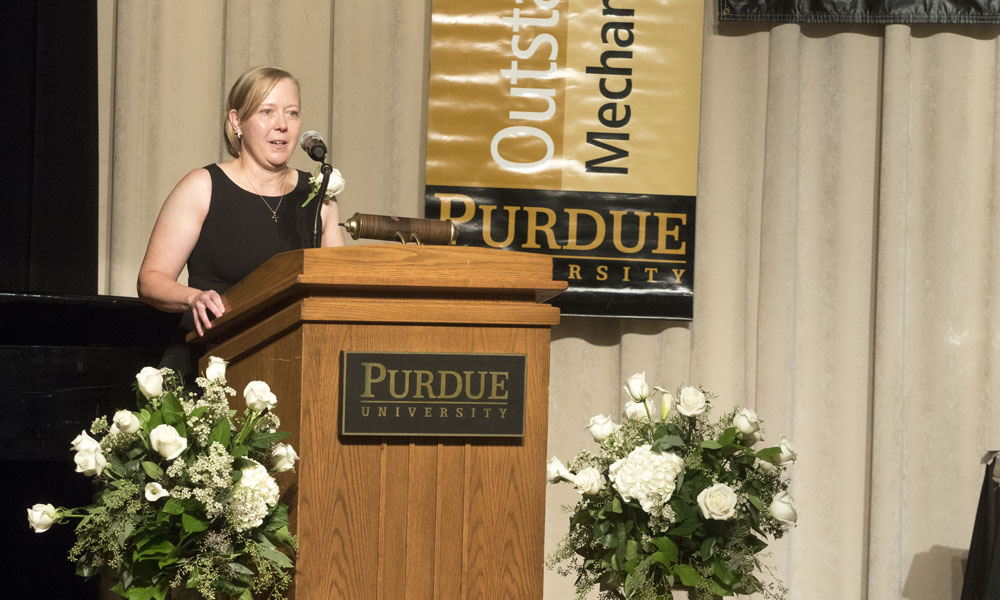As the auto industry travels toward a future that will include vehicles which will drive themselves, FCA US engineer Christine Barman is considering an important question – what will the “driver” want to do with his or her time?
There are numerous possibilities. Perhaps work, watch a movie, connect socially with friends or just have quiet time and relax. “As a company we’re trying to understand the different activities a customer may want to perform. It goes beyond just the piloting technology controlling the vehicle but includes an experience that the customer will appreciate once they are no longer engaged in driving,” says Barman, who is Head of Electrical and Electronics Engineering for FCA North America. It puts her in the center of two hot topics in the auto industry today, infotainment systems and autonomous driving technologies.
While she’s focused on the future, Barman revisited her past recently. She returned to Purdue University, where she earned a bachelor’s degree in mechanical engineering in 1994, to be recognized as one of the 2016 Outstanding Mechanical Engineers. It’s the latest milestone in a 22-year career at FCA that has taken her from basic engineering tasks to guiding teams working on future technologies.
“It is humbling. There are so many accomplished Purdue mechanical engineering graduates that to be included amongst these individuals was surprising,” Barman says. “I wanted to recognize the school for the solid engineering students it graduates year after year and that we at FCA seek to hire those outstanding students and bring them into our organization to apply their talents and expertise.”
In the development of emerging technologies within the FCA team, it’s easy to assume that recent graduates and younger members of the team would easily adopt and accept the development of future driving technologies. But that’s not always the case.
“What’s been intriguing to me, and surprising, is some of our more seasoned team members are more open to adapting to many of the new technologies than some of our younger members,” Barman says. “It’s been unexpected to me that some of our interns and new hires are extremely cautious and unsure if they would trust autonomy in driving.
“However, when interfacing with the more-experienced team members who have driven or developed adaptive cruise control or lane keep assist, they recognize autonomy is possible and they are ready to continue on the development to full autonomy,” she adds. That leads Barman to believe it’s important to get younger members of her team, and younger drivers, more experience to today’s vehicle technologies.
The Indiana native entered Purdue intent on proceeding through the College of Mechanical Engineering on to medical school to become a pediatrician. But a summer internship in an auto parts plant changed her direction.
“The award from Purdue makes me reflect on having an outstanding education,” Barman says. “Working at FCA has given me many opportunities to expand myself, to apply myself and take on challenging roles. It’s made me appreciate what can be achieved every day when leading a great team and all that is to come.”




